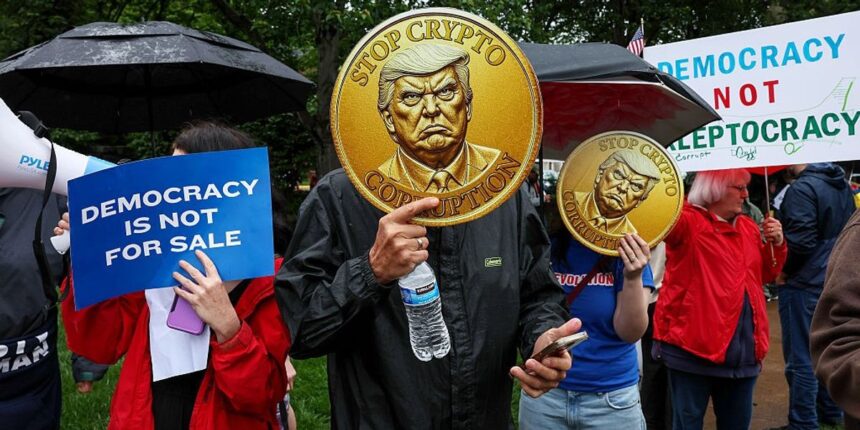A recent investigative report by The New York Times has unveiled a potentially contentious connection between the Trump administration and the United Arab Emirates (UAE), particularly involving high-powered artificial intelligence chips and significant financial investments. According to the report, Sheikh Tahnoon bin Zayed Al Nahyan, a prominent member of the UAE ruling family, made a staggering $2 billion investment in World Liberty Financial, a cryptocurrency startup linked to Donald Trump’s family and Steve Witkoff, the Trump Middle East envoy.
Remarkably, this substantial investment occurred just days before the White House authorized the UAE access to advanced AI chips critical for technological innovation and military applications. These chips, noted for their scarcity and importance in global tech competition, were granted to the UAE despite existing concerns regarding national security and potential ties to China.
The Times’ investigation involved interviews with over 75 individuals, yet it stopped short of providing direct evidence that the investment and the chip deal were directly correlated. The White House firmly denied any relationship between the two occurrences. However, three ethics lawyers consulted by the Times stated that these “back-to-back deals” breach long-standing ethical norms surrounding private and public dealings, especially involving senior officials and their families.
The implications of the report prompted strong reactions from various political analysts and foreign policy commentators. Ryan Cummings, a figure in economic policy research, characterized the situation as potentially the largest public corruption scandal in U.S. history, suggesting it far surpasses any prior controversy.
Laura Rozen, a journalist specializing in U.S. foreign policy, raised concerns about whether Witkoff’s engagement with the UAE might hinder his effectiveness in other crucial diplomatic roles, hinting that his focus may be compromised by personal financial interests tied to the Trump family.
Alasdair Phillips-Robins from the Carnegie Endowment for International Peace described the negotiations as surprisingly weak, noting that granting access to valuable resources without securing any substantial concessions from the UAE reflects poor diplomatic strategy.
Jacob Silverman, an independent journalist tracking U.S. tech industry politics, labeled the actions detailed in the Times as potentially “impeachable,” showcasing a level of corruption that raises significant ethical and legal questions.
Beyond the matter of chip access, the scrutiny on Trump extends to other dealings, including the acceptance of a luxury jet from Qatar for his use during his presidency, which will ultimately be transferred to his official presidential library. This development adds yet another layer to the ongoing discussion regarding the intersection of business and politics within the Trump administration.






